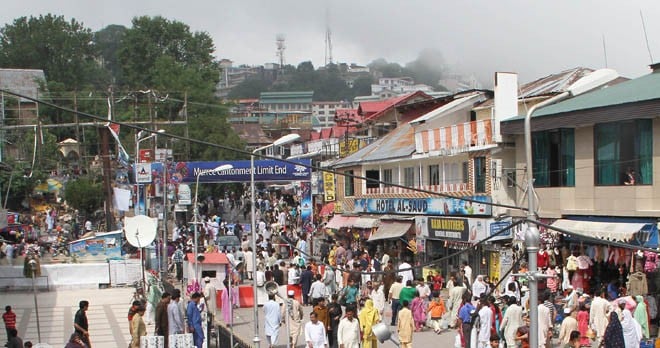

Our country has a great diversity of natural resources and landscapes -- majestic mountains, deep valleys, highland and lowland lakes, long rivers, kaleidoscopic deserts and cultures specific to the local environment. These provide lots of opportunities for nature lovers, sociologists, hikers, climbers, trekkers, campers, historians, writers, environmentalists and conservationists.
With onset of the summer season, summer resorts like Murree, Nathia Gali become the hot topic among people. High altitude places make the top slots on travel itineraries for people looking to beat the heat in the peak hot months of summer. With increasing options to explore mountainous areas, people have started going to these new places rather than ones they have previously visited.
These tourists, however, are unaware of environment-friendly behaviour or what can be aptly called responsible travelling. And those who are aware of this seldom translate it into action.
By understanding the parameters of sustainable tourism, its impact on local environment can be largely minimised. The places that are easily accessible face tremendous biotic pressure from tourists. The influx of tourists mainly comprises youngsters, families, and guided tours that throng a particular place due to the fabulous landscape.
Signs of anthropogenic activities are visible in the natural landscape due to accessibility and available recreational resources. Since people don’t understand the ecotourism principles their tapping into the recreational resources exert a negative impact on the local environment. Clear signs of biotic pressure are observed in the form of scattered solid waste which not only stigmatises the local environment but also reflects on the degree of awareness among the tourists. Absence of proper management makes the matter more serious.
The crux of the matter is to respect and sustain the local environment without registering footprints. This requires a commitment to conservation as far as target groups are concerned.
Mostly tourists have a keen interest in sight-seeing without understanding the inter-relationship of the biotic and abiotic components. At times trash is left in the open littering the pristine wilderness, camping next to water sources with soap-water flowing into it, plastic bags strewn in the open, washing vehicles or clothes with detergent which then makes its way into the water sources.
At times the output of camping in a particular area is visible when the tents are rolled up. This short term behavioural approach becomes too costly for the local environment in the long run. With a small investment in the form of sensitising general masses through public service messages, ads in the newspapers, development of educational and promotional materials and display of informative boards at the sites would contribute to promoting positive changes in the target groups. But above all the role of every individual matters a lot to translate all the desirable acts through their actions which will commensurate with the conservation efforts at large.
In most developing countries, commonly a perception prevails -- "do as the others do" with the precedent that some of the tourists do what they see the others doing. Since most of the tourists belong to that class of society who are not acquainted with the concept of nature-based tourism and they often resort to merely picnicking, therefore, the practice in vogue regarding environmental integrity and harmony is very much marginalised. Since international tourists also visit Pakistan, something of the same kind of environmental ethics and integrity should be presented to them as back in their own countries.
Another key point is that all the recreational natural sites and landscapes are the national assets upon which everyone has equal rights. Therefore, it warrants the need to do justice with such sites by respecting them. Properly propelled by the developmental inputs, quality control, and management, tourism in Pakistan can be at par with international standards as we have scenic landscapes as well.